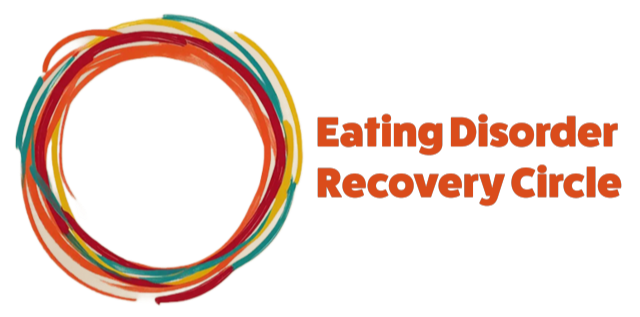How to Challenge Negative Thoughts in Eating Disorder Recovery
Mar 13, 2025Negative thoughts can feel like absolute truth—especially when they’ve been part of your mindset for years.
✔ “I’m not good enough.”
✔ “I’ll never recover.”
✔ “If I gain weight, I’ll lose control.”
These thoughts can be loud, repetitive, and convincing, but they are not facts. They are learned patterns, shaped by past experiences, fear, and diet culture. The good news? You don’t have to believe them.
If negative thoughts are keeping you stuck, check the Feelings Navigator for tools to process self-doubt, fear, and low self-worth.
Step 1: Recognise That Thoughts Are Not Facts
A thought is just a sentence in your head—not an unchangeable reality.
🔹 Thought: “I’m failing at recovery.”
🔹 Fact: Recovery is not linear, and struggles don’t mean failure.
🔹 Thought: “I don’t deserve to eat.”
🔹 Fact: Your body needs nourishment, no matter what.
🚫 Just because your brain tells you something doesn’t mean it’s true.
💡 You are not your thoughts. You can choose what you believe.
📌 If a thought feels overwhelming, share it inside The Circle and get support from others who understand.
Step 2: Identify Your Negative Thought Patterns
Eating disorders often repeat the same harmful thoughts over and over. Identifying these patterns helps you challenge them.
Common Negative Thought Patterns in Recovery:
🔹 Black-and-white thinking: “If I don’t eat perfectly, I’ve failed.”
🔹 Catastrophising: “If I gain weight, everything will fall apart.”
🔹 Personalisation: “People are judging me for eating this.”
🔹 Emotional reasoning: “I feel disgusting, so it must be true.”
💡 When you notice a negative thought, pause and ask: ‘What type of thinking is this?’
📌 If you’re struggling to break these patterns, visit the Feelings Navigator for tools on self-awareness.
Step 3: Challenge the Thought Like a Scientist
When a negative thought arises, don’t accept it automatically—investigate it.
🔹 Ask yourself:
✔ What is the evidence that this thought is 100% true?
✔ What would I say to a friend who had this thought?
✔ Has this thought helped or harmed me in the past?
🔹 Example:
🚫 Negative Thought: “If I eat more, I will spiral out of control.”
✔ Challenge It: Is this based on fact, or is it fear? What does science say about nourishment?
✔ New Thought: “Eating regularly helps my body regain trust. I need fuel to heal.”
💡 When you challenge thoughts, they start losing their power.
📌 If you need help reframing a thought, ask inside The Circle.
Step 4: Replace Negative Thoughts with Truth-Based Affirmations
You don’t have to replace negative thoughts with overly positive ones—but you can create neutral, truth-based alternatives.
🔹 Instead of: “I hate my body.”
✔ Try: “I am learning to respect my body, even if I don’t love it yet.”
🔹 Instead of: “I’m a failure at recovery.”
✔ Try: “Recovery is messy, but I am still moving forward.”
🔹 Instead of: “I can’t trust my body.”
✔ Try: “My body is healing, and I am learning to listen to it.”
💡 Small shifts in language create huge shifts in mindset.
📌 For more support in shifting thoughts, check the Feelings Navigator.
Step 5: Take Action to Break the Thought Cycle
Thoughts become stronger when they are reinforced by actions. Challenge them by doing the opposite of what they demand.
🔹 If your brain says you can’t rest → Take a break.
🔹 If it tells you to restrict → Nourish your body.
🔹 If it says you’re unworthy → Show yourself kindness.
✔ You don’t have to ‘fix’ your thoughts before taking action—acting against them weakens their hold.
💡 Your brain learns from experience. The more you prove it wrong, the weaker negative thoughts become.
📌 If taking action feels scary, share your plan inside The Circle for encouragement.
Step 6: Keep Practicing—Rewiring the Brain Takes Time
Negative thoughts don’t disappear overnight, but every time you challenge them, you are rewiring your brain.
✔ Each time you question a thought, you weaken its power.
✔ Each time you replace it with a neutral thought, your mindset shifts.
✔ Each time you take a recovery-based action, you retrain your brain.
🚀 Recovery is about repetition—not perfection. Keep going.
📌 If progress feels slow, check the Feelings Navigator for motivation and self-compassion tools.
When to Seek Extra Support
If negative thoughts feel constant, overwhelming, or impossible to break, you don’t have to manage them alone.
🔹 Talk to a therapist or recovery coach for cognitive tools.
🔹 Use The Circle to share your struggles and get support.
🔹 Remember: You are not your thoughts—you can retrain them.
Next Steps
🎯 If you feel stuck in negative thinking, visit the Feelings Navigator for strategies.
🎯 If your thoughts are making recovery harder, read "How to Set Boundaries with People Who Don’t Understand Recovery".
🎯 Engage wiith The Circle to discuss your mindset struggles and get support.
Final Reminder
🚀 Your thoughts are not your identity.
You can change them. You can challenge them. And with time, they will lose their power over you. ❤️

